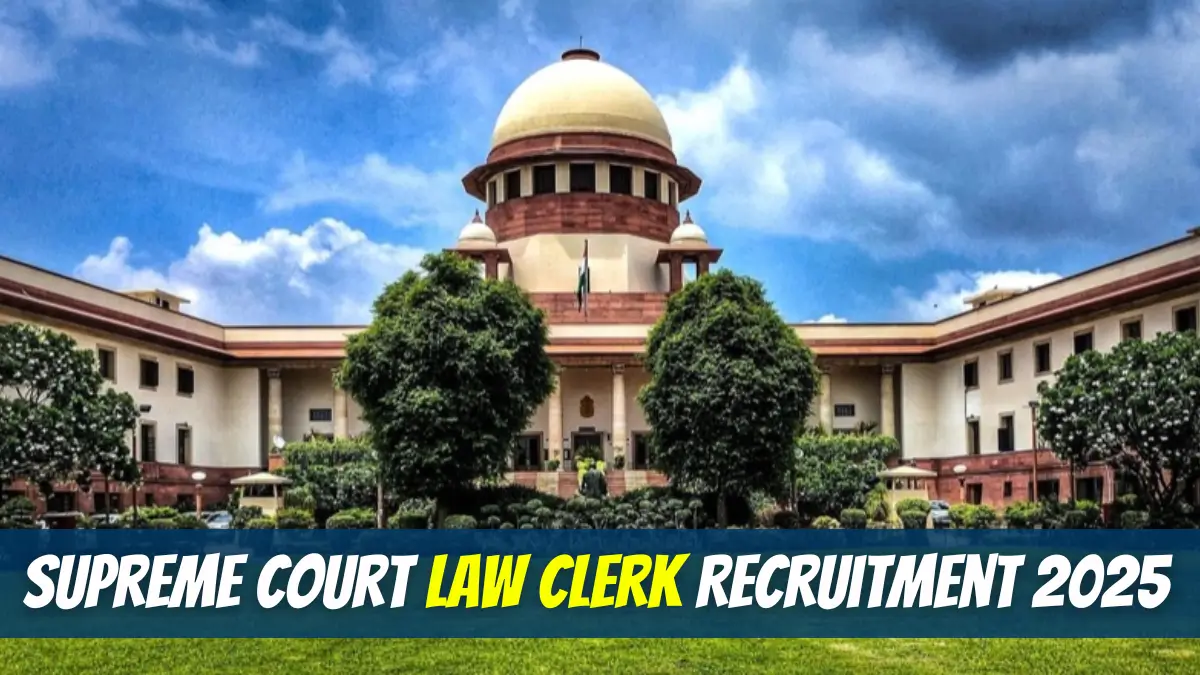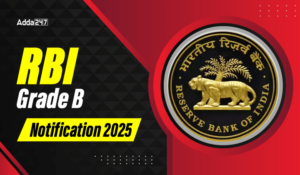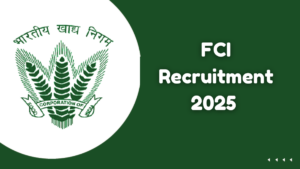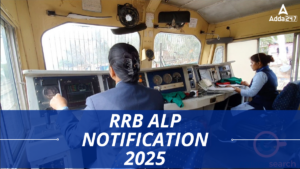Table of Contents
The Supreme Court of India (SCI) has released the Supreme Court Law Clerk Recruitment 2025 Notification for the 2025-2026 term under the “Scheme for Engaging Law Clerk-cum-Research Associates on Short-Term Contractual Assignment.” Candidates who have applied for the law clerk exam for a total of 90 vacancies must check the exam which was released with the notification PDF.
Supreme Court Law Clerk Exam Date 2025 Out
Supreme Court of India (SCI) has released the Supreme Court Law Clerk exam date 2025 on the official website i.e. www.sci.gov.in. The Supreme Court Law Clerk Exam Date for Part 1 exam is 9 March 2025.
Supreme Court Law Clerk 2025 Overview
A summary of all the key details related to the Supreme Court Law Clerk Recruitment 2025 is provided in the table below.
| Supreme Court Law Clerk Recruitment 2025 | |
| Organization | Supreme Court of India (SCI) |
| Exam Name | Supreme Court Law Clerk Exam 2025 |
| Post | Clerk |
| Vacancy | 90 |
| Category | Recruitment |
| Educational Qualification | Law Graduate |
| Age Limit | 20 years to 32 years |
| Application Mode | Online |
| Official Website | www.sci.gov.in |
| WhatsApp Official Channel | Join WhatsApp Channel |
| Telegram Official Channel | Join Telegram Channel |
Supreme Court Law Clerk Recruitment 2025: Important Dates
The Supreme Court has announced the important dates for the Law Clerk Recruitment 2025. The application process has started and candidates can apply till 7th February 2025. The Part 1 written exam will be held on 9th March 2025. Candidates will have time from 10th to 11th March 2025 to raise objections to the answer key.
| Supreme Court Law Clerk Recruitment 2025: Important Dates | |
| Supreme Court Law Clerk Recruitment 2025 | 13th January 2025 |
| Supreme Court Law Clerk Online Application 2025 Starts | 14th January 2025 |
| Supreme Court Law Clerk Online Application 2025 Ends Date | 7th February 2025 |
| Supreme Court Law Clerk Exam Date for Part 1 | 9th March 2025 |
Supreme Court Law Clerk Recruitment 2025 Notification Out
Interested candidates should note that the last date to apply is 7 February 2025. Complete information regarding eligibility, selection criteria, and application procedures can be found in the official notification. Those selected for the position will assist the Supreme Court in legal research and other related tasks. Candidates are encouraged to apply within the given timeframe to be considered for this opportunity, following all guidelines outlined in the official recruitment announcement.
Supreme Court Law Clerk Recruitment 2025-Click Here to Download Notification PDF
Are preparing for Supreme Court Law Clerk Recruitment 2025!!
Supreme Court Law Clerk Recruitment 2025 Apply Online
The Supreme Court of India (SCI) has invited candidates to submit their online applications for various posts on a regular basis. The online application link for Supreme Court Law Clerk Recruitment 2025 was activated on 14 January 2025, and candidates can submit their applications by 7 February 2025. We have provided the direct online application link for Supreme Court Law Clerk Recruitment 2025 in the section given below.
Supreme Court Law Clerk Apply Online Link 2025 [Registration is Over]
Supreme Court Law Clerk 2025 Application Fee
Eligible candidates must apply online through the official website of the Supreme Court www.sci.gov.in. The application/test fee of ₹500, plus applicable bank charges, must be paid online only. The fee will not be accepted in any other form, and applications sent by post will not be accepted. Payment must be made through the payment gateway provided by UCO Bank.
Supreme Court Law Clerk Eligibility Criteria 2025
Applicants for the Supreme Court Law Clerk Recruitment 2025 must ensure that they meet the eligibility criteria for the respective posts. The eligibility requirements for the clerk post include specific educational qualifications, age limit, and relevant experience.
Supreme Court Law Clerk Educational Qualification 2025
The following are the essential qualifications required for candidates applying for the Supreme Court Law Clerk Recruitment 2025:
- The candidate must have a Law Degree (including Integrated Law Course) from a recognized institution in India.
- Candidates in the 5th year of a 5-year course or 3rd year of a 3-year course can apply, if they complete the qualification before starting.
- Research skills, writing abilities, and knowledge of legal databases like e-SCR, Manupatra, LexisNexis, etc., are required.
Supreme Court Law Clerk Age Criteria 2025
The age limit for candidates applying for the Supreme Court Law Clerk Recruitment 2025 is between 20 and 32 years, as of 7 February 2025. Applicants must ensure they meet this age criterion to be eligible for the position.
Supreme Court Law Clerk 2025 Exam Pattern
The Supreme Court Law Clerk Syllabus and exam pattern will be divided into two sections. The first section will consist of Multiple Choice Questions aimed at testing candidates’ understanding of the law and their ability to apply it, along with assessing their comprehension abilities. The second section will be a Subjective Written Examination, designed to evaluate candidates’ writing proficiency and analytical thinking.
| Part | Details | Marks | Duration | Mode |
| Part I | Multiple Choice Questions (MCQs) covering comprehension, legal aptitude, and recent developments in law | 100 | 2.5 hours |
OMR Sheet / Online / Hybrid
|
| Part II | Subjective Written Examination, including case synopsis, research memo, and analytical essay | 300 | 3.5 hours (incl. 30 min reading) |
Physical / Online / Hybrid
|
| Part III | Interview focusing on aptitude, legal knowledge, and communication skills | – | As per schedule |
In-person/Online
|
Supreme Court Law Clerk Recruitment 2025 Selection Process
The selection process for the Supreme Court Law Clerk Recruitment 2025 will be conducted in three phases, as outlined below:
Phase 1: Multiple Choice Questions (MCQs): This phase will assess the candidates’ understanding and application of law, as well as their comprehension skills through MCQs.
Phase 2: Subjective Written Examination: In this phase, candidates will be tested on their writing and analytical skills through subjective questions.
Phase 3: Interview: Candidates who pass the written tests will proceed to the final interview phase.
Supreme Court Law Clerk Salary
The Supreme Court Law Clerk Salary offers a consolidated monthly remuneration of ₹80,000 for the first 12 months. If the assignment is extended, the salary increases to ₹90,000 per month. This pay scale reflects the responsibility of the role and ensures financial stability for the candidates.




 RBI Grade B 2025 Notification, Selection...
RBI Grade B 2025 Notification, Selection...
 FCI Recruitment 2025 Notification Out So...
FCI Recruitment 2025 Notification Out So...
 RRB ALP Recruitment 2025 Notification Ou...
RRB ALP Recruitment 2025 Notification Ou...


